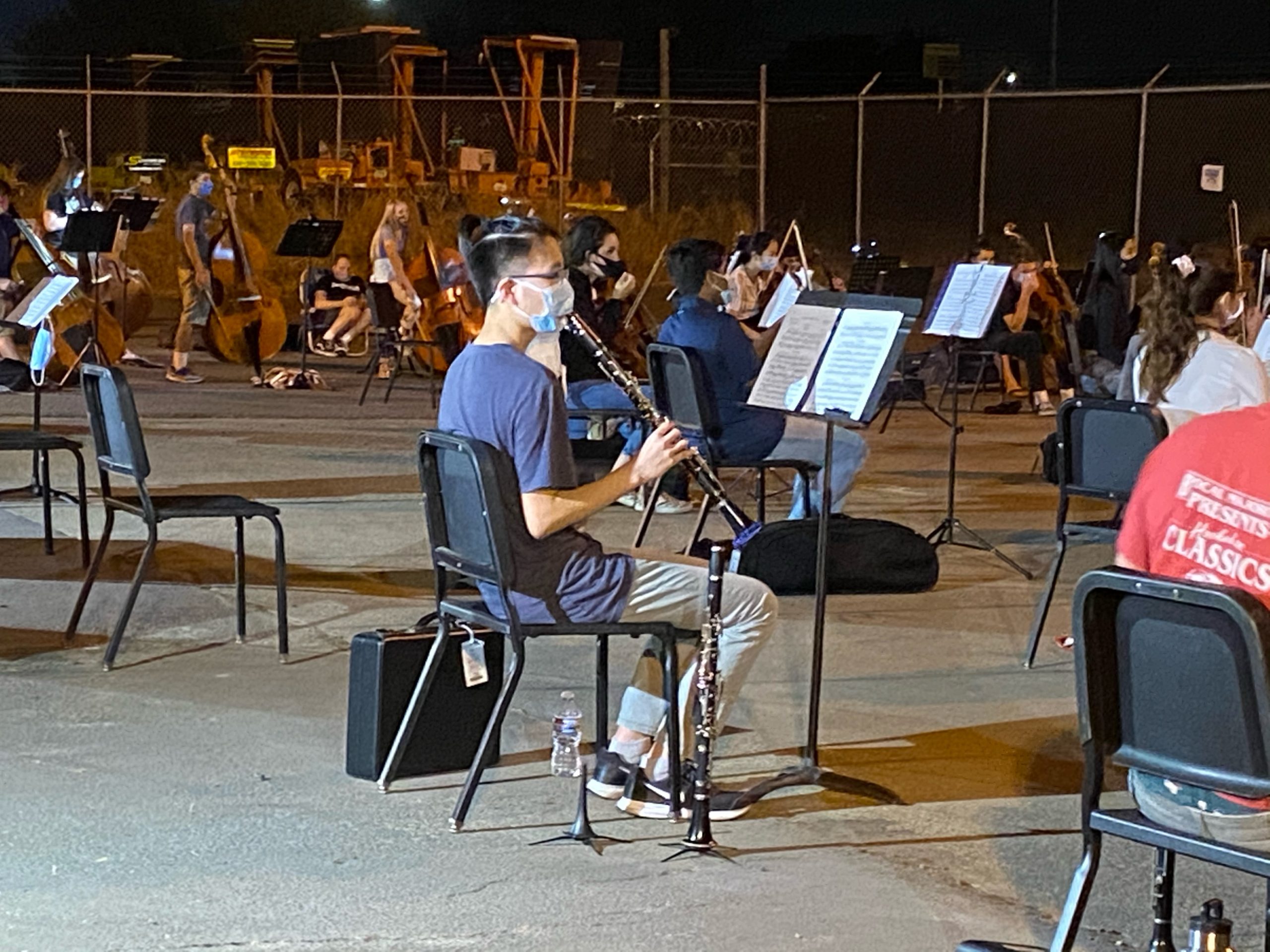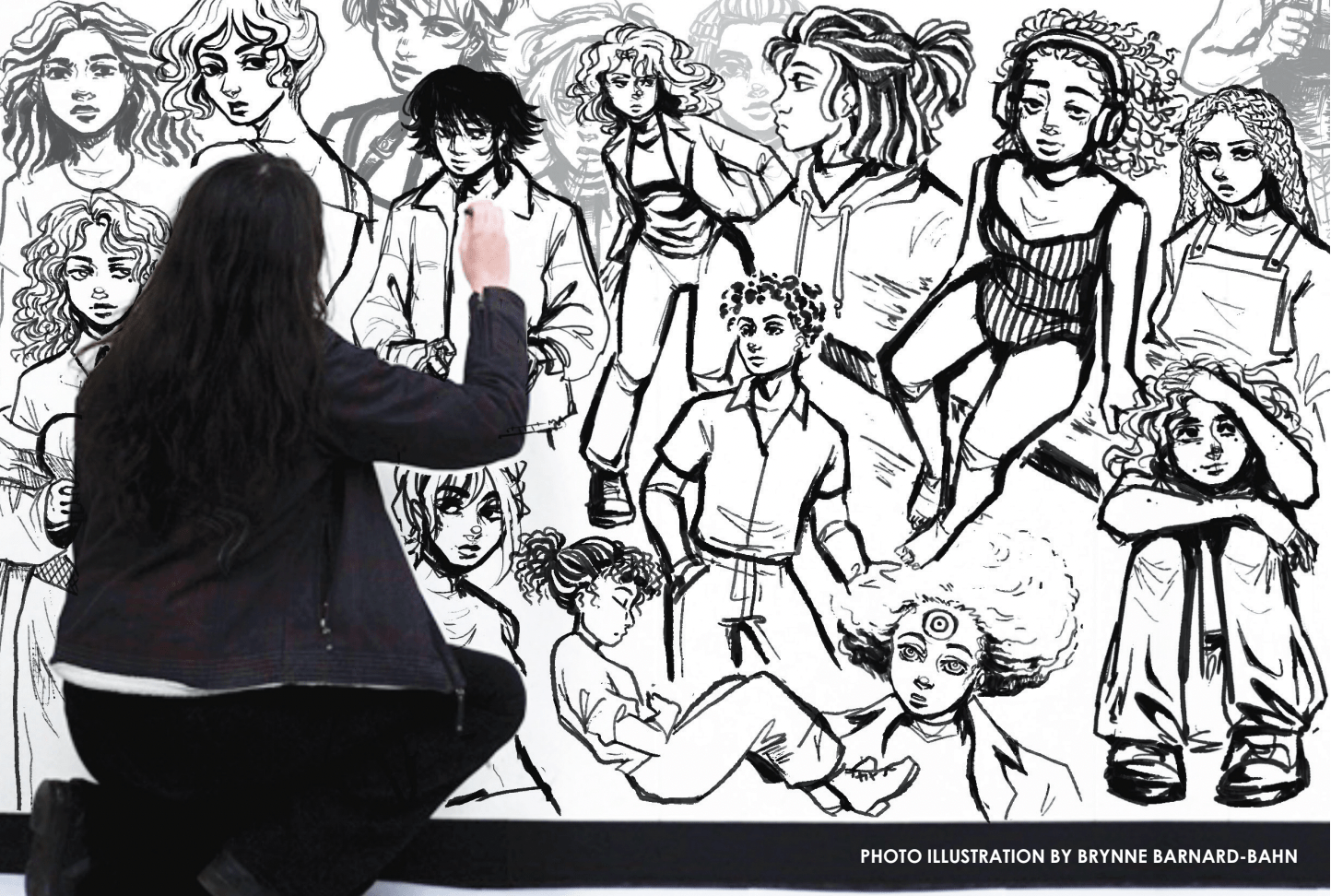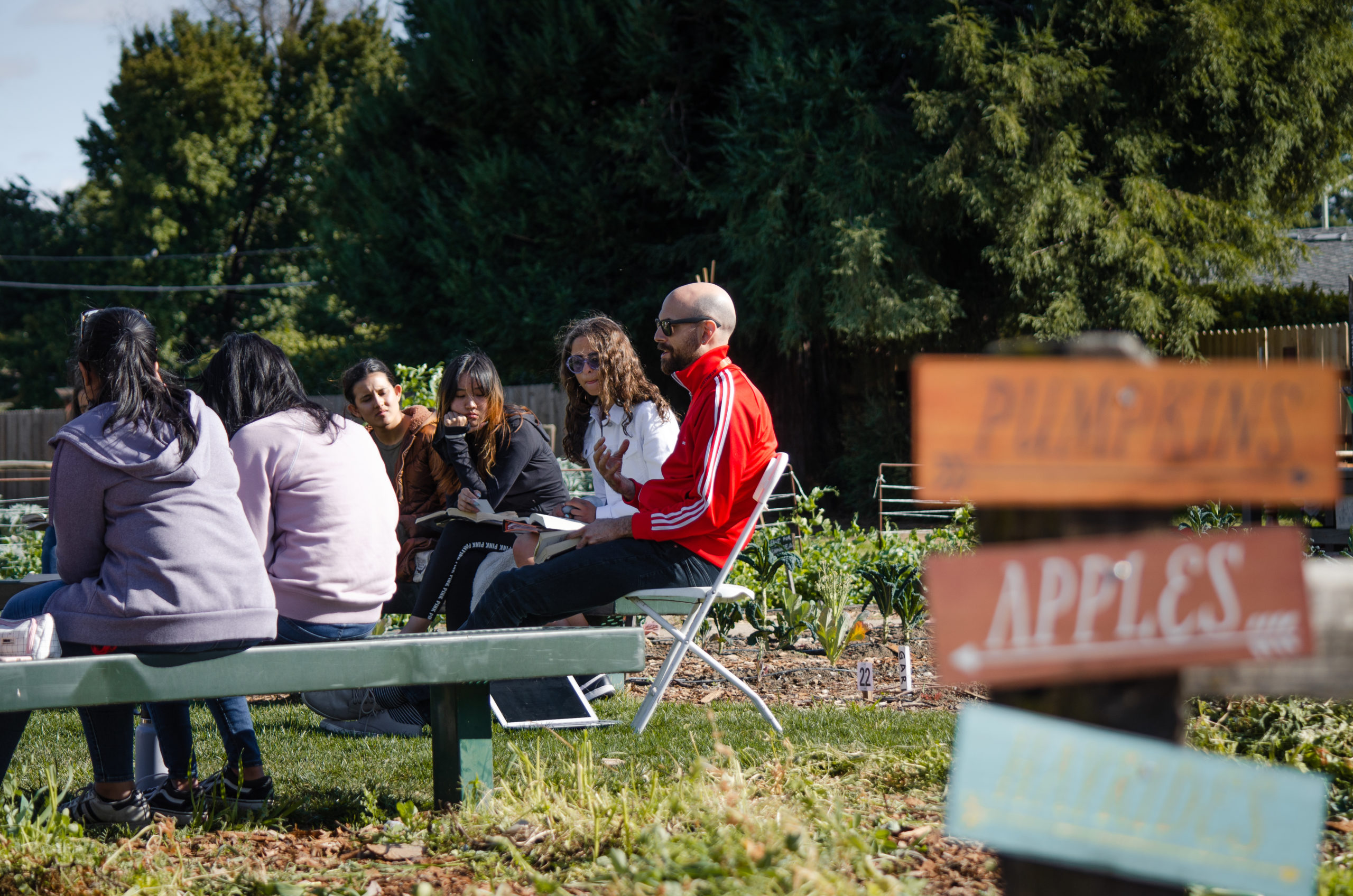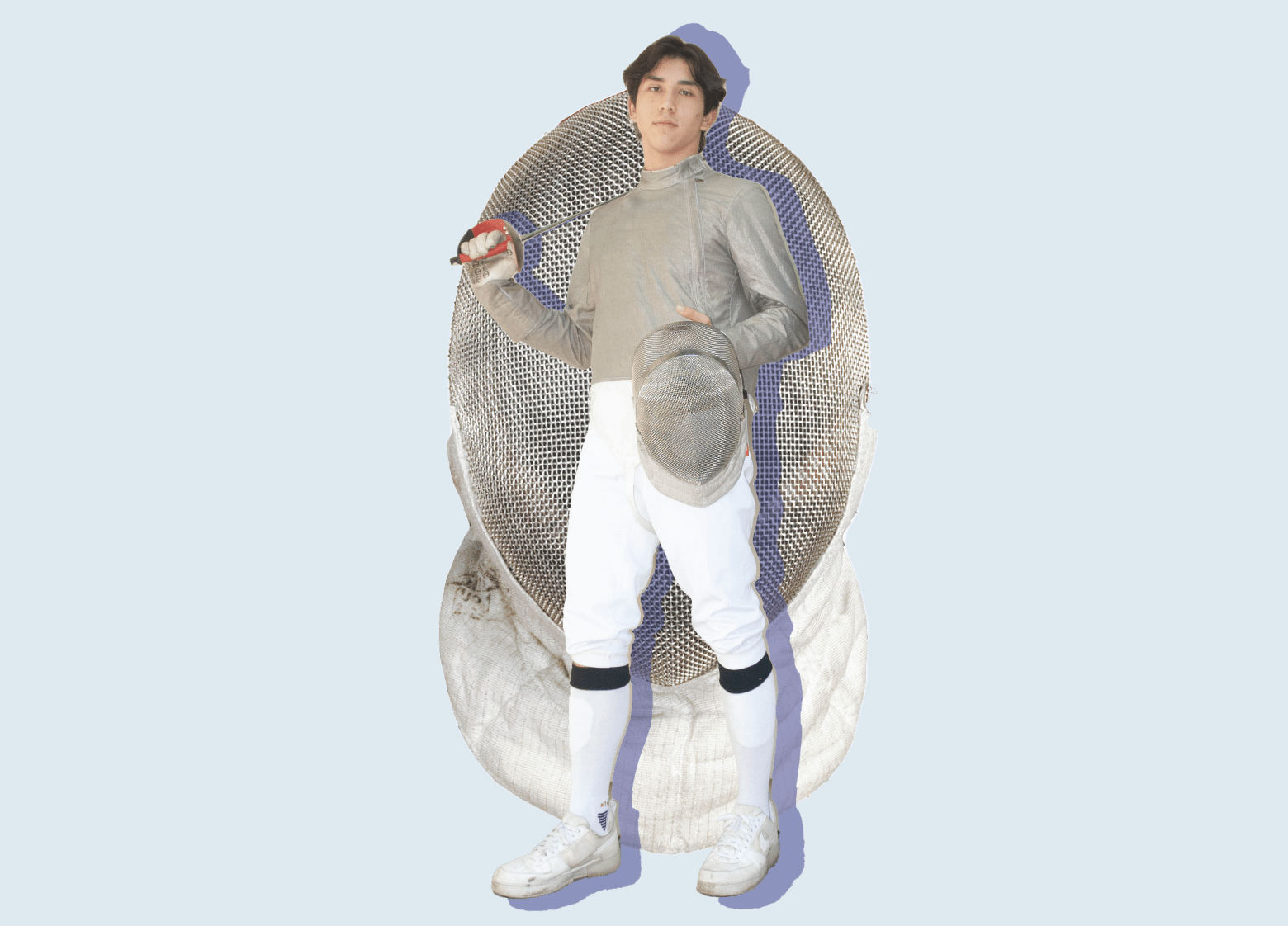In his elementary school classroom in Beijing, a shy and timid Ming Zhu waited patiently in line for his teacher to assign him an instrument to play.
Although he is now a senior, Zhu, then a nine-year-old third grader, was getting the instrument that he would play for the rest of his school career — one that he would eventually learn to love.
“Originally, I wanted to play percussion because I thought it was cool,” Zhu said. “But I was shy, so when I went to tell my teachers what I wanted to play I got intimidated and just got in the line for kids who didn’t know what instrument they should play. When it was my turn I got picked to play the clarinet and kind of just went from there.”
Zhu picked up the clarinet quickly, improving rapidly due to his dedication and practice both in and out of school.
“We had a very competitive band program,” Zhu said. “We were playing some high level stuff in elementary school and went to lots of competitions. Even though I was an introverted kid, I began to get better and better.”
Zhu’s recalls being one of the worst clarinet players in the class on his first day, struggling to make a sound. Determined to improve, Zhu got help outside of school and quickly became one of the best in the class.
Zhu’s prowess with the clarinet came with him when he moved to Sacramento at 13 years old, and it helped connect him with teachers, especially seventh grade math teacher and flutist Laura Monahan. Monahan and Zhu would cross paths when playing together in local symphony orchestras around Sacramento. In these large symphonies Zhu didn’t know anyone, so seeing a familiar face was helpful.
In October 2014, at the Symphony of 1000, a one-day community event sponsored by the Sacramento Youth Symphony, Monahan recalls how she and another alumna flutist — Devin Yamanaka, ’03 — found Zhu, then a seventh grader in her algebra class.
“When we arrived, we ran into Ming as we were all sitting in the woodwind section together,” Monahan said. “I was amazed to find out that Ming had completely memorized all of the music for the hour-long concert and didn’t even need a music stand.”
Monahan also touted Zhu’s ability as a student, explaining that Zhu was an outstanding student who applied creative thinking to both his studies and his music.
Despite Zhu’s excellence in the classroom, he found that transitioning to life in America was challenging as a Chinese native.
“It definitely wasn’t easy, but it wasn’t too difficult,” he said. “I already spoke English adequately well. The main challenge was cultural disconnects.”
Zhu often thought of himself as an outsider, and the two competing cultures of Chinese and American made it difficult for him to connect with his classmates. However, as he progressed through middle school, Zhu became more comfortable with his background and found himself fitting in with his classmates.
“I connected more with people in seventh and eighth grade,” Zhu said. “By the time I was in high school, I no longer felt like an outsider.”
However, while Zhu fits in at school, he recognizes that being a Chinese immigrant means that he will never truly fit in with American society. With the outbreak of the COVID-19 pandemic and a rise in hate crimes against Asian immigrants in America, Zhu found it more difficult to fit in and was aware that his ethnicity was the reason why.
“It’s hard to blend in with everyone else without knowing or being aware that you’re foreign,” Zhu said. “Nowadays I am slightly worried about going outside because of all the Asian hate.”
While Zhu’s nationality made it difficult to assimilate into American culture, he now sees it as an advantage.
“Now that I know both cultures I can see things more holistically,” Zhu said. “It has made me realize that things are a lot more two-sided, and people tend to blindly choose just one side.”
Zhu said that he would often hear the American side of an argument and begin to understand and agree with it. However, having lived in China, he understands the Chinese counterargument that also makes sense. Zhu says that this valid counterargument is something that he says many people overlook when arguing.
Looking back, Zhu credits Country Day for breaking his introverted tendencies.
“I really don’t like meeting people for the first time and I have stage fright,” Zhu said. “Joining Octagon and Mock Trial helped me get more comfortable with both.”
The large number of cold calls he made as an Editor-in-Chief in Octagon and speaking to a crowd of strangers in Mock Trial have helped Zhu to come out of his shell.
Junior and co-editor Arijit Trivedi attributes the success of the Octagon to Zhu’s character and ability as a leader.
“He’s one of the kindest, generous and most straightforward people I know,” Trivedi said. “He genuinely just wants to help out and is the glue that kept the EICs and the Octagon together this year. Without him we would have fallen apart long ago”
In his high school career, Zhu has achieved the highest academic honor at Country Day by being inducted into the Cum Laude Society.
“I’m happy that I was inducted into the society but not in the way of ‘Oh my God, look at me I’m in the Cum Laude Society,’” Zhu said. “It’s a testament to the work I’ve put in throughout high school because it definitely hasn’t been easy.”
Given that English is his second language, Zhu is also proud of his performance on the AP Spanish exam.
“Spanish is hard for me. It’s a third language that I’m trying to learn, and when I speak it for the AP test it’s supposed to sound fluid,” Zhu said. “I was almost destined to get a bad score on the exam but surprised myself and did pretty well.”
Looking forward to opening a new chapter in his life, Zhu is planning on studying software development and machine learning at University of California, Los Angeles.
“I probably won’t miss high school,” Zhu said. “Not because it wasn’t fun, but because I don’t usually look back on my past. My high school self won’t ever be gone, it’ll just be a part of me as I go onto college.”
— By Arjin Claire





